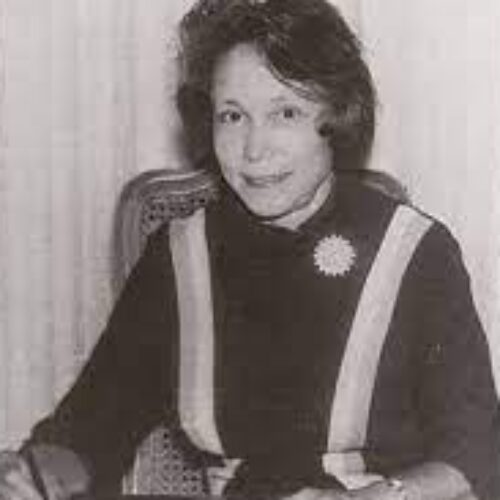Biography
Early Life
Jo Ann Gibson Robinson was the youngest of twelve children of land-owning farmers in rural Georgia. She established her community leadership by achieving valedictorian at her high school and becoming a first-generation graduate from Fort Valley State College.
She continued her passion for education as a public school teacher in Macon, Georgia. After receiving her master’s degree from Atlanta University, she taught at Mary Allen College in Crockett, Texas, and Alabama State College in Montgomery, Alabama. Then she completed more graduate courses in English at the Columbia University Teachers College in New York City.
Activism & Leadership
Robinson was largely responsible for the organization and success of the Montgomery Bus Boycott.
Upon her arrival in Montgomery in 1949, Robinson became involved with social justice activism. She joined the Women’s Political Council (WPC) and Dexter Avenue Baptist Church. Early in her membership at WPC, she was elected to the Presidency of the Women’s Political Council. Later, she served as an Executive Board member, as well as the newsletter editor for the Montgomery Improvement Association (MIA).
Her memoir, The Montgomery Bus Boycott and the Women Who Started It: The Memoir of Jo Ann Gibson Robinson (1987) outlines her outstanding leadership in these social justice organizations. Robinson’s Civil Rights contributions included a host of letters and petitions to local politicians to integrate public transportation, address abuse and violence from bus drivers, and expand fair access to public transportation.
Robinson was humbled by the sacrifices of the boycott participants and her religious convictions led her to decentralize her own role in the narrative of the boycott. Instead, she was dedicated to distributing credit to her broader community. She gave special praise to the church communities and Black ministers that she felt helped the movement.
Throughout the height of the Civil Rights Movement, she remained a faithful supporter of Dr. Martin Luther King. She passionately lauded the accomplishments of many Christian ministers and religious leaders involved.
The Montgomery Bus Boycott
Through a letter, the Montgomery Bus Boycott continued for over a year. It did not end until the conditions for the humane treatment of African Americans were met. Originally, the boycott was intended to be one day.
Her civil rights activism also included creating leaflets educating Montgomery citizens about the boycott. This was immediately following the arrest of Rosa Parks. The leaflets organized volunteer drivers in a carpool system that serviced boycott participants.
Civil Rights Recognitions
Her activism is briefly mentioned in some histories of the Civil Rights Movement. But the magnitude of her pivotal role remains broadly overlooked. Robinson’s leadership and belief in the power of community created opportunities for African Americans.

